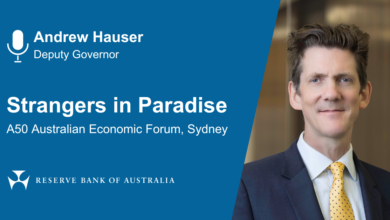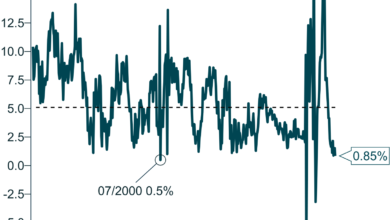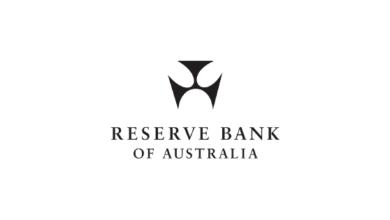Albanese’s plan to transform the Australian economy
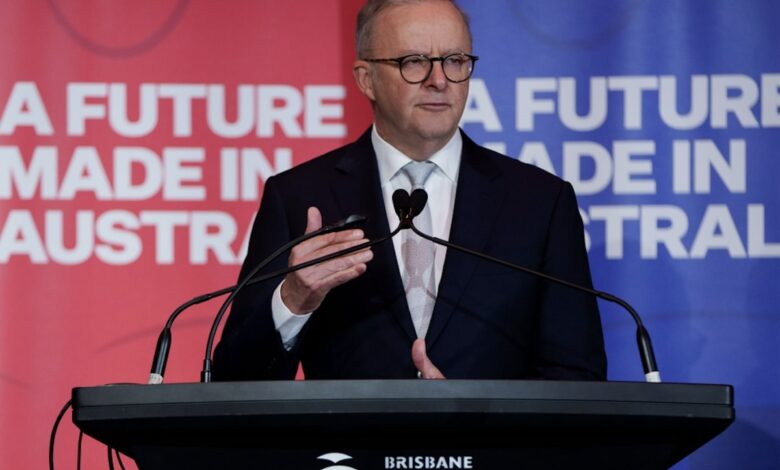
PM Albanese outlines economic reform agenda at Queensland Media Club to boost manufacturing Image: anthonyalbanese.com.au
In a recent speech, Prime Minister Anthony Albanese revealed a strategy to elevate domestic manufacturing and accelerate Australia’s economic advancement, offering federal assistance to pivotal industries. Phillip Hazell reports.
Prime Minister Anthony Albanese has unveiled an ambitious plan to boost local manufacturing and supercharge Australia’s economic growth.
During early April, Albanese spoke at the Queensland Media Club in Brisbane, where he announced plans to introduce the “Future Made in Australia Act”, a legislative initiative combining new and existing measures to stimulate investment and job creation across key Australian industries.
Central to the plan is the establishment of a National Interest Framework, which imposes rigor on government decision-making regarding significant public investments.
The framework identifies priority industries under two streams: the “net zero transformation” stream, focusing on industries contributing to achieving net zero emissions, and the “economic security and resilience” stream, targeting sectors critical to national resilience and security.
These new plans underpin a total economic reform, which, as Albanese explained, aims, “to drive growth, improve competition, lift productivity and create the next generation of prosperity and opportunity.”
Then, in the 2024/25 federal budget, it was announced that the Government will allocate $22.7bn to renewable hydrogen, critical minerals processing, green metals, low carbon liquid fuels, and clean energy manufacturing over the next decade.
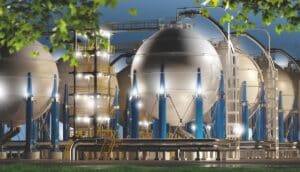

Albanese highlighted global uncertainty, competition, and supply chain disruptions as key reasons for Australia’s imperative to strengthen its domestic manufacturing sector.
“The benign assumption that free trade would spread unchallenged, and globalisation would guarantee peace and prosperity for all,” he said.
“Yet even in countries like Australia that have benefited enormously from the opening-up of our economy and engaging in our region, opportunity has not been shared evenly.
“In other parts of the world, the fault lines are far wider.
“Strategic competition is a fact of life,” he said.
Globally, trends in manufacturing and clean energy sectors have seen increased competition from emerging economies, rising demand for sustainable products, and the growth of renewable energy markets worldwide.
“Australia can’t afford to sit on the sidelines,” Albanese said.
“Being in the race does not guarantee our success – but sitting it out guarantees failure as the world moves past us.
“An inescapable lesson of the past half century is that Australia cannot isolate ourselves from global economic change, even if we wanted to.”
Change and growth
With an overarching theme of investing into green energy practices and securing Australia’s sovereign interests, Albanese said that a new wave of reform is required to alter the countries increasingly challenged economic status.
“As the Treasurer, Jim Chalmers, has put it – Australia’s economy is not productive enough, not resilient enough and not competitive enough,” he said.
“We need a new wave of economic reform to change this.
“This new wave demands a new approach – and since the last election, our Government has been laying the foundations to deliver it.”
Albanese stated that foreign governments are focusing on facilitating industry growth, citing subsidies for local industry provided by the EU, Japan, Canada, South Korea, and the US under President Joe Biden’s Inflation Reduction Act.
“Nations are drawing an explicit link between economic security and national security,” he said.
“We must recognise that the partners we seek are moving to the beat of a new economic reality.
“In their different ways, they are re-aligning their economies to better drive and distribute growth across their own populations.”
Treasurer, Jim Chalmers, said in his 2024/25 budget speech that the Government will: “Create a front door for investors to accelerate and coordinate transformational projects.
“A new Act and new framework will impose the rigour – focusing investment on transformational opportunities,” he said.
“And setting conditions to ensure investors benefiting from our incentives are supporting their people and communities – to lift private investment in skills, workforces, and local supply chains.”
Chalmers continued to explain that the green transformation presents a: “Golden opportunity for Australia.”
“The world is changing, the pace of that change is accelerating, and our approach to growth and investment needs to change as well,” he said.
“If we hang back, the chance for a new generation of jobs and prosperity will pass us by – and we’ll be poorer and more vulnerable as a consequence.
“This Budget invests in our renewable energy superpower ambitions.”
Key investments
In the 2024/25 Federal Budget, details regarding the allocation Future Made in Australia funds have emerged. Some of the notable investments are as follows:
Implementation of a National Interest Framework, which will be supported by an initial allocation of $500m;
$3.2bn earmarked for renewable hydrogen initiatives;
$1.7bn allocated for innovation in priority sectors like green metals and low carbon liquid fuels;
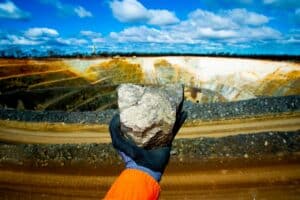

A 10 per cent production incentive for processing and refining costs of critical minerals, encouraging long-term investment in this sector;
Investments to support the development of clean energy manufacturing capabilities, with initiatives like the Solar Sunshot and Battery Breakthrough Initiative receiving substantial funding;
Adherence to community benefit principles in investments, emphasising local communities, supply chains, skill development, diverse workforces, and job security, supported by an investment of $200m;
Expansion of Export Finance Australia’s National Interest Account to support projects pivotal for national security, resilience, or enhancing national competitiveness, with an injection of $300m; and
Scheduled reviews of priority industries against the National Interest Framework to ensure continuous alignment with evolving global and national priorities, supported by a commitment of $50m.
Jessica Olivier, RSM Australia’s National Leader in Manufacturing Services, expressed mixed feelings towards the recent announcements made in the Budget.
“Rather than the manufacturing sector as a whole, the Budget focused on critical minerals, clean energy and green technologies,” said Olivier.
“However, it was pleasing to see the announcement of $500m for the tertiary sector to increase skills in manufacturing and clean energy, as well as the announcement of various initiatives to lift private investment and workforce skills and boost local supply chains.”
“Last year’s $15bn National Reconstruction Fund has been rolled into the Future Made in Australia policy, which on a positive note saw a 51 per cent increase in the overall funding allocated to Future Made in Australia totalling $22.7bn.”
Oliver agreed with the Treasurer that Australia’s approach to renewables.
“In general, I would agree with the Treasurer that Australia’s approach to renewables investment did need to change to prevent the economy from becoming more vulnerable,” she said.
“It is welcome to see moves to both support and streamline regulatory approvals for the Future Made in Australia agenda, as well as allocating funding for international investment to encourage collaboration with industry, investors, and major stakeholders.
“This should attract and facilitate major investment – manufacturers will welcome that.”

